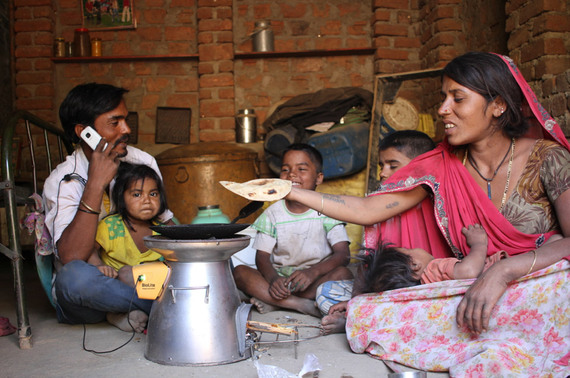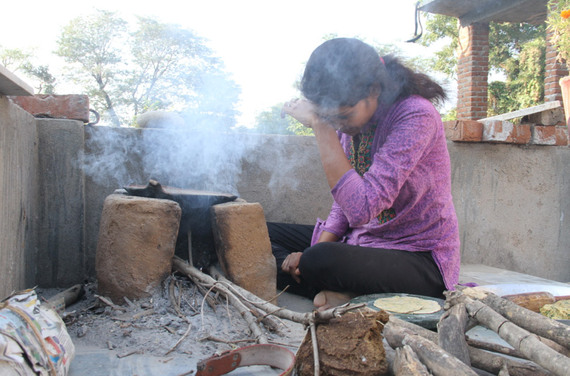It's three weeks now that I wake up with updates from my family and friends living in Chennai, one of the largest metropolitan cities in India, on how the city is drowning due to incessant, unprecedented rains. While Paris convenes on the impending effects of climate change, Chennaites do not have the luxury to sit around and discuss the reasons behind their situation; they are simply looking for ways to stay afloat amidst the flooding, power cuts, and ensuing disease.
In another part of the country, in a very sunny and dry Udaipur, I share the latest news from Chennai with my didi, my house assistant whom I lovingly refer to as older sister. While we come from different places, we respect each other deeply as hardworking women, both of us trying to support the world around us. But today my words do not connect because she is distracted, worrying about her daughter's health.
While my didi earns a living working for five different households, her 20-year-old daughter cooks for their own family over an open fire every day, twice a day. She has been doing this from an early age and the smoke from the fire has taken a toll on her health. Over the years she has ignored the coughing, wheezing, eyes burning, and her near inability to put on weight. With the burden of feeding the family falling to her, there was not much of a choice. She is now engaged to be married and my didi is worried that if the groom's family discovers her daughter's illness, they'll call off the wedding.
As I read about the Paris Climate Talks along with all the terrifying news from Chennai and watch my didi agonize about her daughter, I am compelled to think about how connected each one is to the other; how women are disproportionately affected by the impact of climate change; how cleaner cooking resources are kept at arms length for women as male head of households dominate purchase decisions. As if the back-breaking work to collect wood to keep the fire burning was not hard enough, women get sick from the soot emitted from these very fires they light every day. Four million people are dying from the soot of these fires every year, the majority being women given their proximity to the daily flame. These same fires account for 25% of all black carbon emissions into the atmosphere, disrupting weather patterns and warming the air. As I see tweets come in of packed rooms and digestible #COP21 quotes, I wonder how many people know about the small side panel on December 7th about energy and clean cookstoves. I wonder how many people will show up to give voice to the three billion people that deal with these fires every day.
As world leaders are discussing the health of our planet, I ask that they also talk about the health of my didi's daughter. While CO2 solutions are decades away, cleaning up cooking fires is achievable now. There are thousands of organizations, all over the world, tirelessly building cleaner burning stoves, testing market programs, attempting to create self-sustaining change. A global coalition is at work but we need a broader commitment from our leaders and governments to make providing safer and cleaner energy access to all a priority. Here in India, we need the support of the government to reduce barriers and taxes on a product that can make lives healthier and safer for many. When you address energy access through cooking, you address a host of interconnected needs: health, gender equality, climate, and even economic empowerment.
Despite the grim news of late, I find myself hopeful. Later today I'll be visiting a group of women who are proud owners of the HomeStove, a highly efficient cookstove we've been developing for five years at my organization, BioLite. Having sold these stoves to them directly, I am personally invested in their lives and in understanding what's working, what's not, and how our organization can support their bold choice to bring a radical new appliance into their homes.

The group leader called yesterday inviting me to visit her home and has promised to serve Rabri (a barley yogurt drink in Rajasthan and my personal favorite) cooked on her new HomeStove. She wishes to thank me for the money her family is saving, the cleaner air they have in the home, and for the unexpected new pleasure of chatting with her husband while he charges their mobile phone with the HomeStove's power port. "He never paid attention to the fire before," she chuckles.
It is time we all paid attention to her fire.
